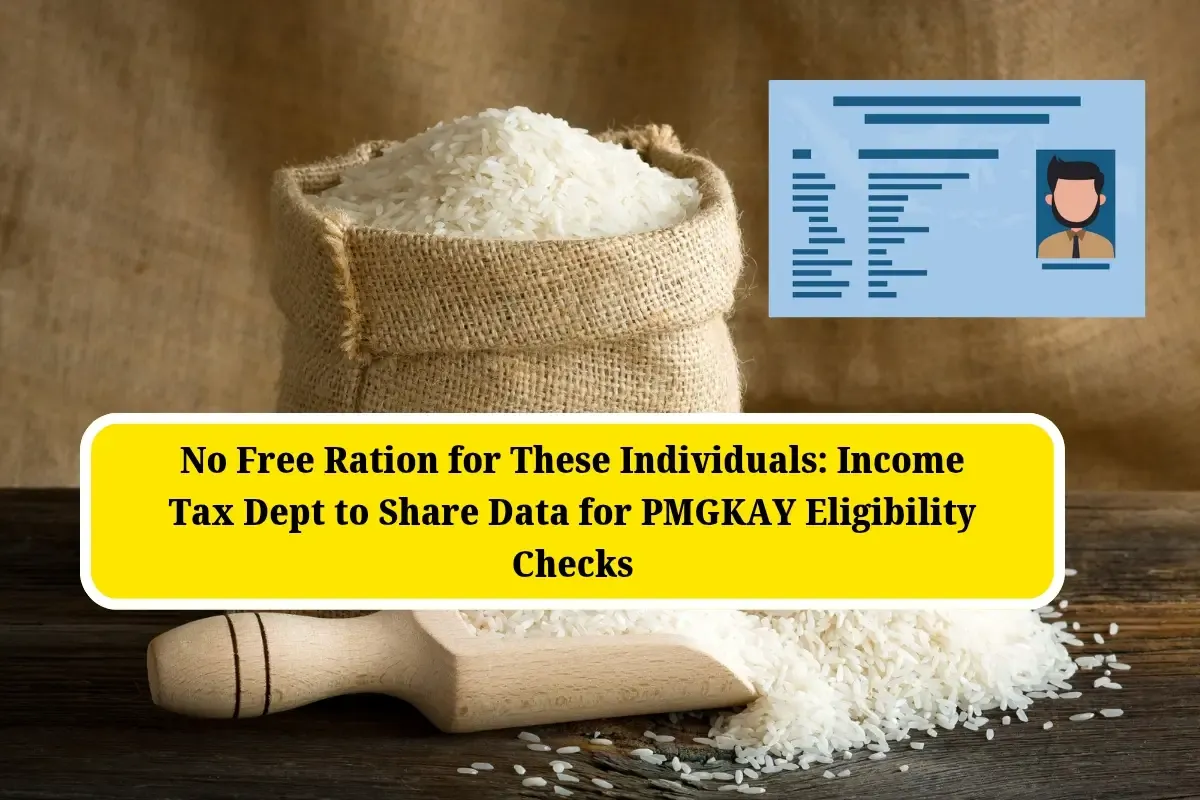Bhubaneswar: In a significant move to ensure transparency and efficiency in welfare schemes, the Indian government has announced that certain individuals will no longer be eligible for free ration under the Pradhan Mantri Garib Kalyan Anna Yojana (PMGKAY). The Income Tax Department will now share data with relevant authorities to verify the eligibility of beneficiaries, ensuring that the scheme’s benefits reach only those who truly need them.
PMGKAY, a flagship initiative launched to provide free food grains to economically vulnerable families, has been a critical support system for millions of Indians, especially during times of economic hardship. The scheme aims to alleviate hunger and food insecurity by offering essential supplies to low-income households. However, concerns have been raised about ineligible individuals, including those with higher incomes, availing of the benefits meant for the underprivileged.
To address these concerns, the government is introducing stricter eligibility checks by leveraging income tax data. This step will help identify individuals whose financial status disqualifies them from receiving free ration under the scheme. By integrating income tax records into the verification process, authorities aim to create a more accurate and fair system for distributing resources.
This decision reflects the government’s commitment to ensuring that welfare schemes like PMGKAY are not misused and that resources are directed toward those who need them the most. While the move may impact some individuals who were previously receiving benefits, it is a necessary step to maintain the integrity of the program and ensure its long-term sustainability.
For eligible beneficiaries, this change will not affect their access to free ration. However, it underscores the importance of accurate data and transparency in the implementation of welfare programs. The government’s efforts to streamline the process are expected to enhance the effectiveness of PMGKAY and similar initiatives, ultimately benefiting the most vulnerable sections of society.
As this new system rolls out, it is essential for individuals to stay informed about the eligibility criteria and any updates to the scheme. By doing so, they can ensure they continue to receive the support they are entitled to while contributing to a fairer and more efficient distribution system.
PMGKAY, a flagship initiative launched to provide free food grains to economically vulnerable families, has been a critical support system for millions of Indians, especially during times of economic hardship. The scheme aims to alleviate hunger and food insecurity by offering essential supplies to low-income households. However, concerns have been raised about ineligible individuals, including those with higher incomes, availing of the benefits meant for the underprivileged.
To address these concerns, the government is introducing stricter eligibility checks by leveraging income tax data. This step will help identify individuals whose financial status disqualifies them from receiving free ration under the scheme. By integrating income tax records into the verification process, authorities aim to create a more accurate and fair system for distributing resources.
This decision reflects the government’s commitment to ensuring that welfare schemes like PMGKAY are not misused and that resources are directed toward those who need them the most. While the move may impact some individuals who were previously receiving benefits, it is a necessary step to maintain the integrity of the program and ensure its long-term sustainability.
For eligible beneficiaries, this change will not affect their access to free ration. However, it underscores the importance of accurate data and transparency in the implementation of welfare programs. The government’s efforts to streamline the process are expected to enhance the effectiveness of PMGKAY and similar initiatives, ultimately benefiting the most vulnerable sections of society.
As this new system rolls out, it is essential for individuals to stay informed about the eligibility criteria and any updates to the scheme. By doing so, they can ensure they continue to receive the support they are entitled to while contributing to a fairer and more efficient distribution system.










0 Comments